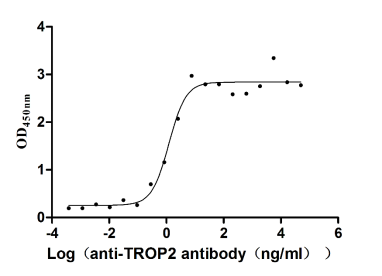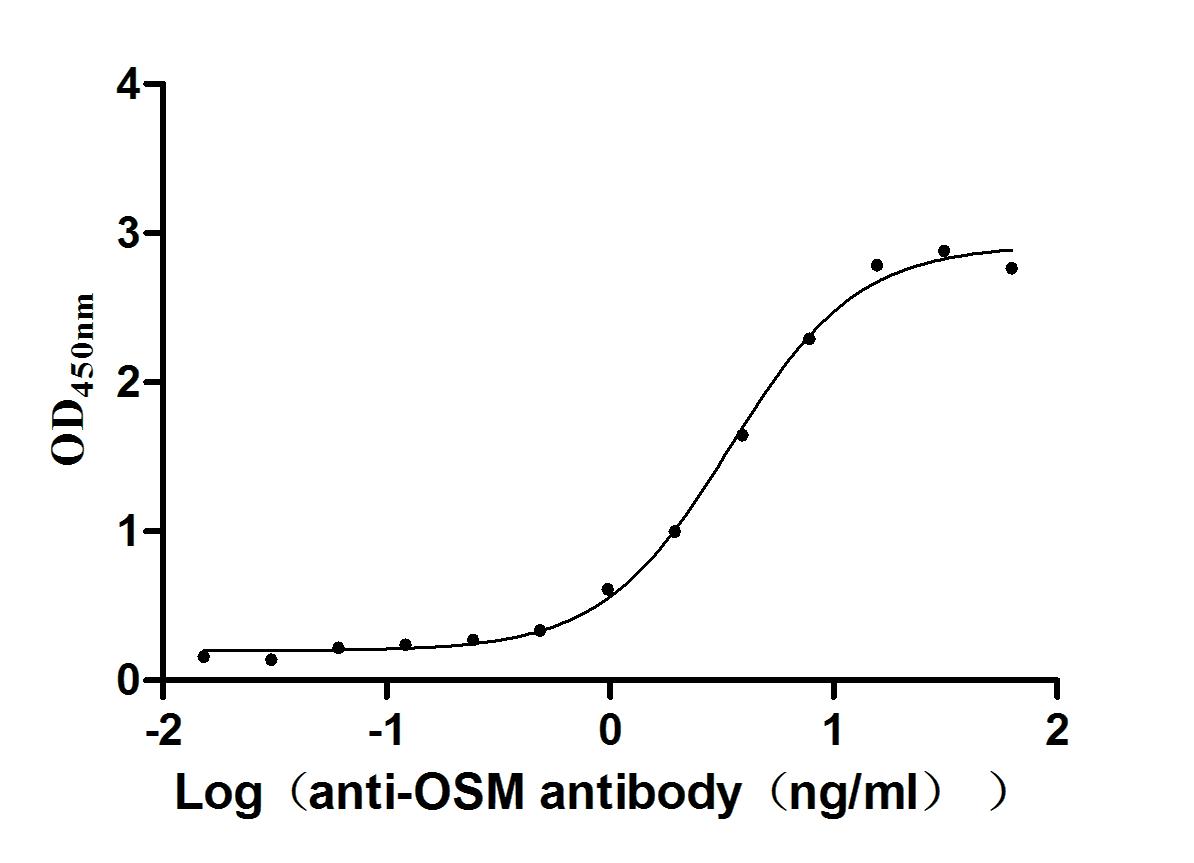Recombinant Mouse Group 10 secretory phospholipase A2 (Pla2g10)
-
货号:CSB-YP882554MO
-
规格:
-
来源:Yeast
-
其他:
-
货号:CSB-EP882554MO-B
-
规格:
-
来源:E.coli
-
共轭:Avi-tag Biotinylated
E. coli biotin ligase (BirA) is highly specific in covalently attaching biotin to the 15 amino acid AviTag peptide. This recombinant protein was biotinylated in vivo by AviTag-BirA technology, which method is BriA catalyzes amide linkage between the biotin and the specific lysine of the AviTag.
-
其他:
-
货号:CSB-MP882554MO
-
规格:
-
来源:Mammalian cell
-
其他:
产品详情
-
纯度:>85% (SDS-PAGE)
-
基因名:
-
Uniprot No.:
-
别名:Pla2g10; Group 10 secretory phospholipase A2; EC 3.1.1.4; Group X secretory phospholipase A2; GX sPLA2; sPLA2-X; Phosphatidylcholine 2-acylhydrolase 10
-
种属:Mus musculus (Mouse)
-
蛋白长度:Full Length of Mature Protein
-
表达区域:29-151
-
氨基酸序列GL LELAGTLDCV GPRSPMAYMN YGCYCGLGGH GEPRDAIDWC CYHHDCCYSR AQDAGCSPKL DRYPWKCMDH HILCGPAENK CQELLCRCDE ELAYCLAGTE YHLKYLFFPS ILCEKDSPKC N
-
蛋白标签:Tag type will be determined during the manufacturing process.
The tag type will be determined during production process. If you have specified tag type, please tell us and we will develop the specified tag preferentially. -
产品提供形式:Lyophilized powder
Note: We will preferentially ship the format that we have in stock, however, if you have any special requirement for the format, please remark your requirement when placing the order, we will prepare according to your demand. -
复溶:We recommend that this vial be briefly centrifuged prior to opening to bring the contents to the bottom. Please reconstitute protein in deionized sterile water to a concentration of 0.1-1.0 mg/mL.We recommend to add 5-50% of glycerol (final concentration) and aliquot for long-term storage at -20℃/-80℃. Our default final concentration of glycerol is 50%. Customers could use it as reference.
-
储存条件:Store at -20°C/-80°C upon receipt, aliquoting is necessary for mutiple use. Avoid repeated freeze-thaw cycles.
-
保质期:The shelf life is related to many factors, storage state, buffer ingredients, storage temperature and the stability of the protein itself.
Generally, the shelf life of liquid form is 6 months at -20°C/-80°C. The shelf life of lyophilized form is 12 months at -20°C/-80°C. -
货期:Delivery time may differ from different purchasing way or location, please kindly consult your local distributors for specific delivery time.Note: All of our proteins are default shipped with normal blue ice packs, if you request to ship with dry ice, please communicate with us in advance and extra fees will be charged.
-
注意事项:Repeated freezing and thawing is not recommended. Store working aliquots at 4°C for up to one week.
-
Datasheet :Please contact us to get it.
相关产品
靶点详情
-
功能:Secretory calcium-dependent phospholipase A2 that primarily targets extracellular phospholipids. Hydrolyzes the ester bond of the fatty acyl group attached at sn-2 position of phospholipids with preference for phosphatidylcholines and phosphatidylglycerols over phosphatidylethanolamines. Preferentially releases sn-2 omega-6 and omega-3 polyunsaturated fatty acyl (PUFA) chains over saturated fatty acyls. Contributes to phospholipid remodeling of very low-density lipoprotein (VLDL), low-density lipoprotein (LDL) and high-density lipoprotein (HDL) particles. Hydrolyzes LDL phospholipids releasing unsaturated fatty acids that regulate macrophage differentiation toward foam cells. Efficiently hydrolyzes and inactivates PAF, a potent lipid mediator present in oxidized LDL. May act in an autocrine and paracrine manner. Secreted by lung epithelium, targets membrane phospholipids of infiltrating eosinophils, releasing arachidonate and boosting eicosanoid and cysteinyl leukotriene synthesis involved in airway inflammatory response. Secreted by gut epithelium, hydrolyzes dietary and biliary phosphatidylcholines in the gastrointestinal lumen, thereby regulating adipogenesis and body weight. Plays a stem cell regulator role in colon epithelium. Within intracellular compartment, mediates Paneth-like cell differentiation and its stem cell supporting functions by inhibiting Wnt signaling pathway in intestinal stem cell (ISC). Secreted in the intestinal lumen upon inflammation, acts in an autocrine way and promotes prostaglandin E2 synthesis that stimulates the Wnt signaling pathway in ISCs and tissue regeneration. May participate in hair follicle morphogenesis by regulating phosphatidylethanolamines metabolism at the outermost epithelial layer and facilitating melanin synthesis. By generating lysophosphatidylcholines (LPCs) at sperm acrosome controls sperm cell capacitation, acrosome reaction and overall fertility. May promote neurite outgrowth in neuron fibers involved in nociception. Contributes to lipid remodeling of cellular membranes and generation of lipid mediators involved in pathogen clearance. Cleaves sn-2 fatty acyl chains of phosphatidylglycerols and phosphatidylethanolamines, which are major components of membrane phospholipids in bacteria. Displays bactericidal activity against Gram-positive bacteria by directly hydrolyzing phospholipids of the bacterial membrane. In pulmonary epithelium, may contribute to host defense response against adenoviral infection. Prevents adenovirus entry into host cells by hydrolyzing host cell plasma membrane, releasing C16:0 LPCs that inhibit virus-mediated membrane fusion and viral infection. Likely prevents adenoviral entry into the endosomes of host cells. May play a role in maturation and activation of innate immune cells including macrophages, group 2 innate lymphoid cells and mast cells.
-
基因功能参考文献:
- secretory PLA2s have important functions as genetic modifiers of inflammation and colon cancer. PMID: 27292189
- PLA2G10 releases omega-3 polyunsaturated fatty acids, suppresses colitis, and promotes sperm fertility. PMID: 26828067
- Progesterone-induced Acrosome Exocytosis Requires Sequential Involvement of Calcium-independent Phospholipase A2beta (iPLA2beta) and Group X Secreted Phospholipase A2 (sPLA2). PMID: 26655718
- GX sPLA2 negatively regulated pancreatic insulin secretion by augmenting COX-2-dependent PGE2 production. PMID: 25122761
- Mouse PLA2GX has a unique property of improving fertilization outcome among other secreted phospholipase A2 isoforms. PMID: 24287291
- Data indicate that experimental allergic bronchitis (EAB) in was associated with increased expression of sPLA2, specifically sPLA2gX, in the lungs. PMID: 24204651
- s propose that activation of GX-sPLA2 during H1N1pdm infection is an early step of pulmonary inflammation and its inhibition increases adaptive immunity and improves survival. PMID: 24725934
- Pla2G10 limits the development of atherosclerosis in LDL receptor-null mice. PMID: 23349189
- the use of a highly potent indole-based inhibitor of hGX-sPLA(2), RO061606 (which is ineffective against mGX-sPLA(2)), to assess the potential utility of GX-sPLA(2) blockade as a therapeutic intervention in asthma. PMID: 21652694
- sPLA(2)-X in neutrophils plays a pathogenic role in abdominal aortic aneurysms in a mouse model. PMID: 21984544
- sPLA2 plays a new role for fertilization by selecting a sperm subpopulation based on its effect on sperm motility. PMID: 21792918
- Group X secretory phospholipase A2 promotes macrophage inflammatory responses by altering cellular cholesterol homeostasis and lipid raft content. PMID: 21622863
- Physiological roles of group X-secreted phospholipase A2 in reproduction, gastrointestinal phospholipid digestion, and neuronal function. PMID: 21266581
- the spatiotemporal expression of sPLA(2)-X in hair follicles, the presence of skin-specific machinery leading to sPLA(2)-X activation, a functional link of sPLA(2)-X with hair follicle homeostasis. PMID: 21266583
- GX sPLA(2) promotes Ang II-induced pathological responses leading to abdominal aortic aneurysm formation PMID: 20833395
- hydrolytic products generated by GX sPLA(2) negatively regulate adipogenesis, possibly by suppressing LXR activation PMID: 20585029
- The overexpression of GX sPLA(2) significantly reduced ABCA1 and ABCG1 expression in J774 macrophage-like cells, whereas GX sPLA(2) deficiency in peritoneal macrophages was associated with enhanced expression. PMID: 20844270
- Group X phospholipase A2 is released during sperm acrosome reaction and controls fertility outcome in mice PMID: 20424324
- LDL modification by GXPLA2 [GXPLA2] PMID: 12021277
- group X secreted phospholipase A2 is expressed in neural cells and has neuritogenic action PMID: 15781456
- sPLA2-X induces potent arachidonic acid release without activation of cytosolic phospholipase A2 alpha. PMID: 15789617
- group V, but not group X, secreted phospholipase A2 has a role in lung dysfunction PMID: 17008322
- direct attention to group X-secreted phospholipase A2 as a novel therapeutic target for asthma PMID: 17403936
- Myocardial ischemia/reperfusion injury was attenuated in sPLA(2)-X(-/-) mice partly through the suppression of neutrophil cytotoxic activities PMID: 18506007
- secretory phospholipase A2 group X enhances anti-inflammatory responses, promotes lipid accumulation, and contributes to aberrant lung pathology PMID: 18511424
- Enhanced protein expression in mammalian cells using engineered SUMO fusions: example of secreted PLA2-X. PMID: 18539905
显示更多
收起更多
-
亚细胞定位:Secreted. Lysosome. Cytoplasmic vesicle, secretory vesicle, acrosome.
-
蛋白家族:Phospholipase A2 family
-
组织特异性:Expressed at high levels in testis and the gastrointestinal tract including stomach and colon. Expressed at lower levels in other tissues including small intestine, uterus, oviduct, lung, thymus, spleen and brain. Expressed in Paneth-like secretory epithe
-
数据库链接:
KEGG: mmu:26565
STRING: 10090.ENSMUSP00000023364
UniGene: Mm.4214
Most popular with customers
-
Recombinant Human CD40 ligand (CD40LG), partial (Active)
Express system: Mammalian cell
Species: Homo sapiens (Human)
-
Recombinant Human SARS coronavirus Spike glycoprotein (S), partial (Active)
Express system: Mammalian cell
Species: Human SARS coronavirus (SARS-CoV) (Severe acute respiratory syndrome coronavirus)
-
Recombinant Human Insulin growth factor-like family member 1 (IGFL1) (Active)
Express system: Mammalian cell
Species: Homo sapiens (Human)
-
Recombinant Human Mucin-17 (MUC17), partial (Active)
Express system: Mammalian cell
Species: Homo sapiens (Human)
-
Recombinant Mouse Complement component C1q receptor (Cd93), partial (Active)
Express system: Mammalian cell
Species: Mus musculus (Mouse)
-
Recombinant Human Dickkopf-related protein 1 (DKK1) (Active)
Express system: Mammalian cell
Species: Homo sapiens (Human)
-
Recombinant Human Tumor-associated calcium signal transducer 2 (TACSTD2), partial (Active)
Express system: Mammalian cell
Species: Homo sapiens (Human)
-
Recombinant Human Oncostatin-M (OSM), partial (Active)
Express system: Mammalian cell
Species: Homo sapiens (Human)


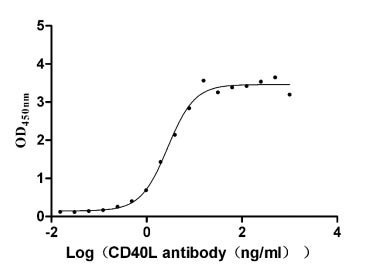
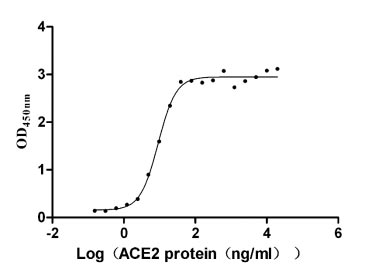
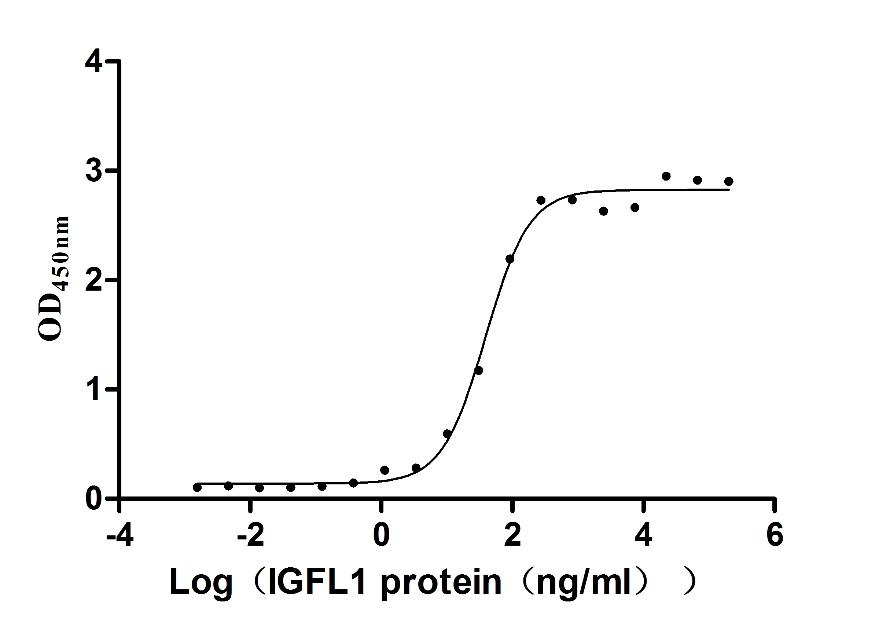
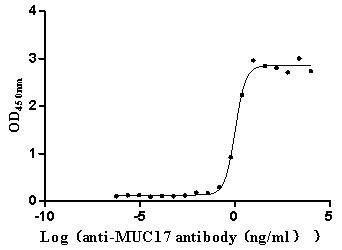
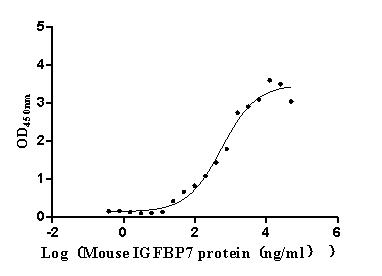
-AC1.jpg)
